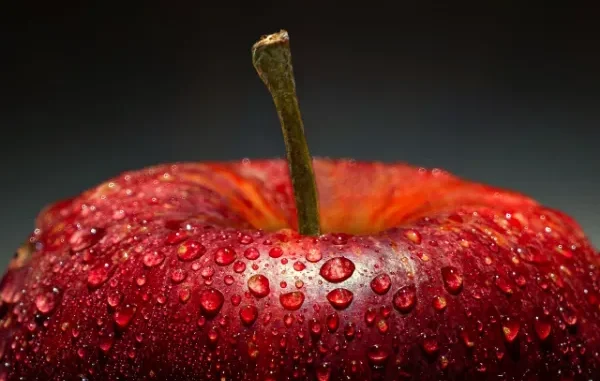
For anyone considering a hair transplant, the focus is usually on the latest surgical methods and the doctor’s skills. But there’s an equally important factor that’s often overlooked: your body’s overall health and the nutrients you feed it every day.
Healthy hair growth depends on far more than what happens in the operating room. Your scalp, follicles, and recovery all rely on the vitamins, minerals, and proteins you consume. Without the right foundation, even the most advanced techniques may not deliver the dense, natural look you expect.
Reputable clinics like Redefine remind patients that this journey starts inside the body. One simple step is to check for any hidden gaps in your diet. Learning how to test for a nutritional deficiency can help you avoid preventable setbacks and support healthy, long-lasting results.
Why Your Diet Impacts New Growth

Your hair is one of the first parts of your body to show signs of stress or poor nutrition. Follicles are highly sensitive to deficiencies. When your diet falls short whether from restrictive eating, stress, or digestive issues, your body prioritizes vital organs first. Hair takes the hit.
In the context of a transplant, every new follicle depends on your scalp’s ability to heal well, connect with blood vessels, and receive nutrients. Iron supports oxygen flow to these tissues, vitamin D helps regulate the hair growth cycle, and protein provides the building blocks for strong strands. Without enough of these, your results can look thinner, weaker, or patchy.
Preparing Before Your Procedure
Your prep stage is more than just booking your date and arranging your schedule. It’s a chance to get your body into the best possible shape. Many surgeons recommend basic blood tests to check iron, vitamin D, B12, and zinc levels. If your results show you’re low, making dietary changes or taking supplements under medical guidance can help.
A balanced meal plan in the months before your procedure should include lean meats, eggs, fatty fish like salmon, beans, nuts, and lots of leafy greens. Staying hydrated keeps your scalp and skin supple and helps your body circulate nutrients more efficiently.
It’s the small choices of adding more vegetables, swapping sugary drinks for water, preparing protein-rich snacks, that can make a difference when it’s time for your scalp to heal and new hair to grow.
Healing Well After Surgery
Once your procedure is done, the healing process is critical. Tiny wounds need to close, new follicles must anchor, and your scalp needs to stay calm and free of infection.
Protein helps rebuild tissue. Vitamins like C and E, along with zinc, reduce inflammation and support collagen production, which holds everything in place. Omega-3s from foods like flaxseed, chia seeds, or oily fish can keep your scalp hydrated and help fight dryness or itching.
Many patients feel low energy or discomfort in the first few days. Meal prepping beforehand can help you avoid skipping healthy foods or falling back on processed snacks that don’t nourish your body.
Protecting Results in the Long Run
Getting a hair transplant is an investment in your confidence and protecting that investment means thinking beyond the first few months. While transplanted hair is typically resistant to DHT, it’s not immune to lifestyle factors.
If you’re dealing with sudden shedding or notice your hairline thinning again, poor nutrition could be a hidden culprit. Crash diets, stress, and skipping meals can all cause hair to weaken and shed more easily.
The key is consistency. A diet rich in protein, healthy fats, whole grains, nuts, and fresh produce helps keep follicles strong and your scalp healthy. Simple habits like drinking plenty of water and using gentle hair products add an extra layer of protection.
How the Right Clinic Supports You
It’s easy to assume that every clinic offers the same guidance, but that’s not always true. A trusted team doesn’t just perform your procedure, they educate you on what to expect before and after. They’ll explain why nutrition, lifestyle habits, and scalp care work together to give you the best chance at dense, natural growth.
This full-picture approach sets apart an average result from one that looks seamless and stays strong for years.
Should You Work with a Nutritionist?
If you’re unsure whether your diet could be better, or if you have medical conditions like anemia, PCOS, or digestive issues, talking to a nutritionist can help. They can tailor a plan that supports hair growth and recovery without complicated or restrictive rules.
Testing for common deficiencies every year or so, especially if you notice unusual shedding is a good habit. Early detection and small changes can protect your transplant results.
Small Daily Choices Matter
Hair restoration is as much about what you do outside the clinic as what happens inside it. When you understand how nutrition supports your follicles, you’re better equipped to make the daily choices that matter.
Eat balanced meals, keep your nutrient levels steady, stay hydrated, and give your scalp gentle care. These small, steady efforts work hand in hand with your surgeon’s skill to help you get the natural results you deserve.
Final Thoughts
A successful hair transplant is about more than graft counts and surgical tools. It’s about the environment you create in your body to help new hair thrive. By addressing your nutritional needs, you’re giving your scalp the foundation it needs for a result that not only looks good but lasts.
Take the time to check in with your doctor, run basic blood tests, and make your everyday meals work for your goals. Pair that with the expertise of a clinic like Redefine, and you’ll feel confident knowing you did everything possible to get the best outcome from the inside out.






Leave a Reply